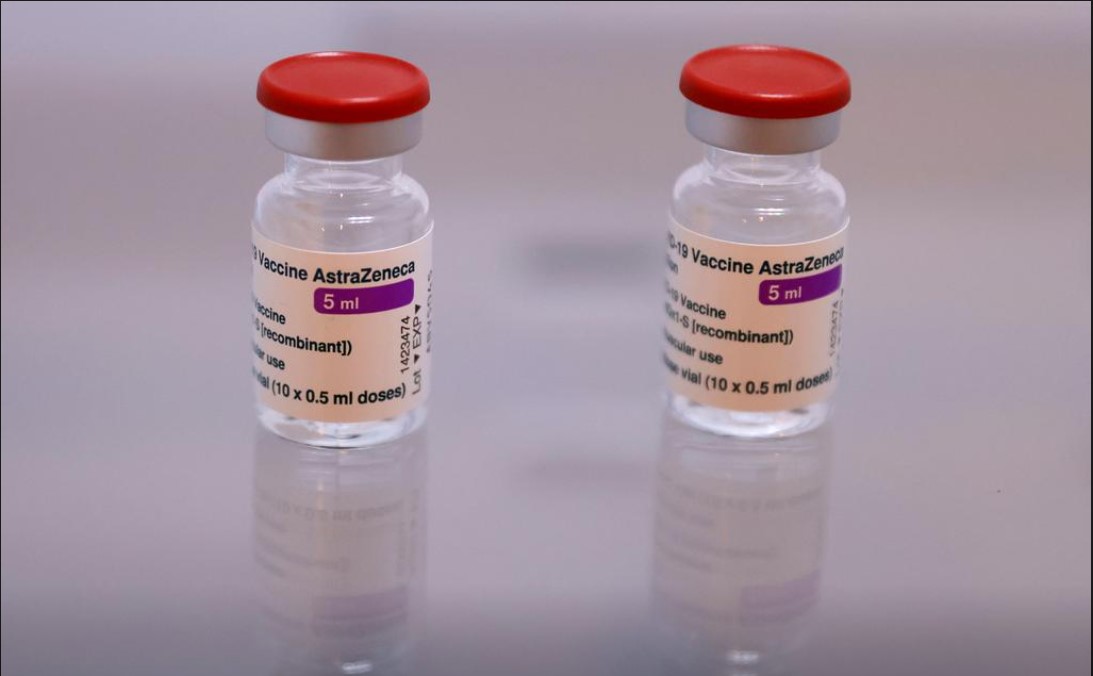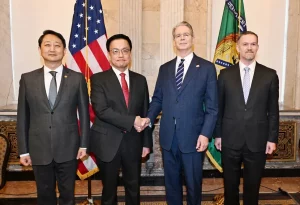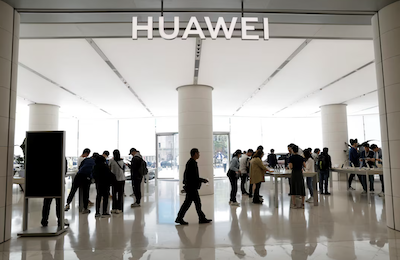(ATF) The world’s biggest vaccine maker and the World Health Organisation have complained that the production of coronavirus vaccines and scaling up global availability could be seriously challenged due to the US’s Defense Production Act that bans exports of critical raw materials.
The Biden administration recently announced plans to use the Defense Production Act to boost supplies needed to make Pfizer Inc’s vaccines, after Pfizer scaled back its production targets last year due to difficulties in securing raw materials to produce the vaccines on a large scale.
The US law blocks the export of key items like bags and filters that will likely ease US vaccine makers’ procurement constraints but cause “serious bottlenecks” in vaccine production globally, say experts.
Read more: China denies ‘patriots’ plan for HK legislature is a purge
Adar Poonawalla, the head of the world’s largest vaccine maker by volume, Serum Institute of India (SII), warned last week at a WHO meeting that manufacturers of Covid vaccines were facing a global shortage of raw materials because a US law is blocking the export of certain key items.
“There are a lot of bags, filters and other critical items that manufacturers need. For example, the Novavax vaccine; we’re a major manufacturer, and for it, we need these items from the US. Now the US has chosen to invoke the Defense Act, in which there is a sub-clause which prevents the export of critical raw materials required for the local vaccine manufacturers,” Poonwalla said at a World Bank panel discussion.
Soumya Swaminathan, from the WHO, also added that there were shortfalls of vials, glass, plastic and stoppers required by many global makers.
Poonawala called for regulatory harmonisation between organisations such as WHO and authorities in vaccine manufacturing countries such as India, US, Europe and the UK in order to “shave off months” and give “parallel approvals” for the vaccines.
‘CRITICAL FACTOR’
“Now this really needs to be looked at because if we’re talking about building capacity all over the world, sharing of these critical raw materials, which just can’t be replaced in a matter of six months or a year, is going to become a critical limiting factor,” Poonwalla said.
SII plans to make 100 million doses of the Covishield vaccine per month in the next two months, according to an earlier statement, and is also likely to start manufacturing the Novavax vaccine soon.
Having produced 1.5 billion doses of the vaccine last financial year, SII has already supplied around 60 million doses of Covishield to the Indian government for the national immunisation programme. SII has also supplied 90 million doses to 51 countries – a record pace for the company, according to Poonawala.
However, the ban will not impact the current production, he added.
SUPPLY COMMITMENTS
SII plans to develop a capacity of 2.3 billion doses in 2021, and has several supply commitments for these vaccines – the Indian government, the World Health OrganiSation-led COVAX and other bilateral deals, according to reports.
In November last year, Pfizer said it will cut short its Covid vaccine production target by half, citing raw material crunch. The company had earlier planned to roll out over 1.2 billion doses of coronavirus vaccines in 2021 and 100 million doses by 2020-end but both targets were later reduced.
Concerned over the shortages, the Biden administration invoked the use of the Defense Production Act to boost supplies needed to make Pfizer-BioNTech Covid-19 vaccines.
BIDEN PROMISE
Biden has promised to administer 100 million vaccination shots in his first 100 days in office and laid out plans to buy 600 million doses, enough to vaccinate much of the US population.
Nevertheless, in a reminder that the world is depending on mass manufacturing at an unprecedented speed and scale to end the pandemic, Poonwalla said the industry would reach out to the US President to assure his administration that there’s enough to go around and encourage free global access.
Consequently, WHO vaccine partners, The International Federation of Pharmaceutical Manufacturers & Associations and the Developing Countries Vaccine Manufacturers Network are likely to hold meetings this week to discuss the plan.
- With reporting by Moneycontrol.com.
Also on ATF:
























